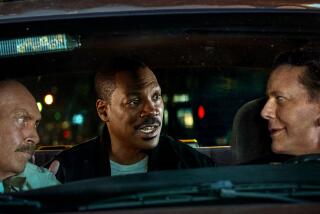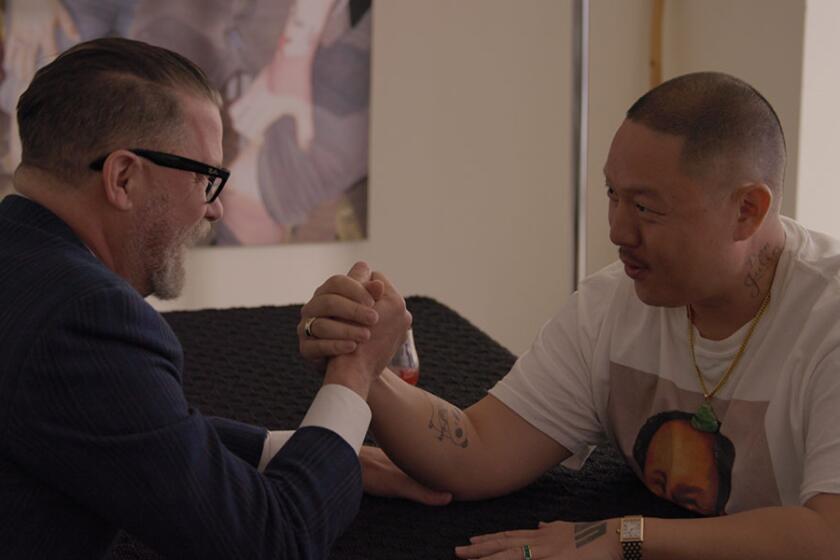Griffin tries the Pryor method
Producer David Permut caught lightning in a bottle back in 1979 with his film “Richard Pryor -- Live in Concert,” and he hopes lightning will strike a second time with “DysFunKtional Family,” which stars African American stand-up comic Eddie Griffin.
Made for $1 million, the Pryor movie grossed more than $30 million domestically and influenced the way comedians would be presented on the big screen for years to come. Also a concert film, “DysFunKtional Family” opens Friday. Griffin has appeared in a handful of other movies, most recently the hilarious, underappreciated “Undercover Brother.”
For the record:
12:00 a.m. April 16, 2003 For The Record
Los Angeles Times Wednesday April 16, 2003 Home Edition Main News Part A Page 2 National Desk 1 inches; 55 words Type of Material: Correction
Producer credit -- Del Jack and J. Mark Travis were the producers of the film “Richard Pryor: Live in Concert.” A March 31 Calendar article about Eddie Griffin’s “DysFunKtional Family” incorrectly identified David Permut as a producer of the Pryor movie. Permut’s name does not appear in the credits for “Richard Pryor: Live in Concert.”
“What I love about this film is it’s truly original,” Permut said. “Richard Pryor talked about his family on stage, but we actually meet Eddie’s along the way.”
And what a family. There’s Uncle Bucky, who raised Griffin and spent more time in the Big House than in Eddie’s house; Uncle Curtis, who introduced Griffin to film, whether it was classic westerns or classic pornography; and Griffin’s mother, whose disciplinary consequences for bad behavior became legendary.
Rated R for strong sexual content, language and drug-related humor, the film was shot over a 60-hour period in Griffin’s hometown of Kansas City (or “KC-Mo,” as Eddie calls it), with two nights of concerts filmed before a crowd of 3,500 in Chicago.
“What I love about the movie is it tells the story of a kid who made it out of Kansas City’s ghetto,” Permut said. “His father figure is Uncle Bucky, a pimp who always encouraged Eddie to go with his goals and go to Hollywood and be a star. It represents the American dream and embodies who Eddie is.”
-- Robert W. Welkos
More to Read
Only good movies
Get the Indie Focus newsletter, Mark Olsen's weekly guide to the world of cinema.
You may occasionally receive promotional content from the Los Angeles Times.









